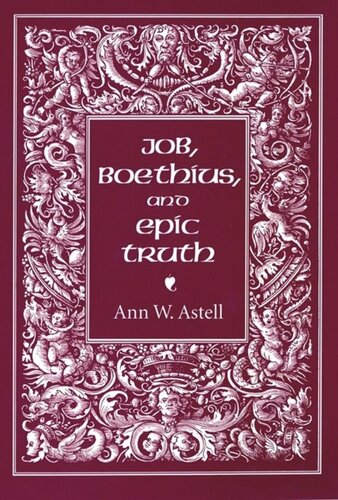

Most ebook files are in PDF format, so you can easily read them using various software such as Foxit Reader or directly on the Google Chrome browser.
Some ebook files are released by publishers in other formats such as .awz, .mobi, .epub, .fb2, etc. You may need to install specific software to read these formats on mobile/PC, such as Calibre.
Please read the tutorial at this link: https://ebookbell.com/faq
We offer FREE conversion to the popular formats you request; however, this may take some time. Therefore, right after payment, please email us, and we will try to provide the service as quickly as possible.
For some exceptional file formats or broken links (if any), please refrain from opening any disputes. Instead, email us first, and we will try to assist within a maximum of 6 hours.
EbookBell Team

4.8
24 reviewsCalling into question the common assumption that the Middle Ages produced no secondary epics, Ann W. Astell here revises a key chapter in literary history. She examines the connections between the Book of Job and Boethius' s Consolation of Philosophy—texts closely associated with each other in the minds of medieval readers and writers—and demonstrates that these two works served as a conduit for the tradition of heroic poetry from antiquity through the Middle Ages and into the Renaissance. As she traces the complex influences of classical and biblical texts on vernacular literature, Astell offers provocative readings of works by Dante, Chaucer, Spenser, Malory, Milton, and many others. Astell looks at the relationship between the historical reception of the epic and successive imitative forms, showing how Boethius's Consolation and Johan biblical commentaries echo the allegorical treatment of" epic truth" in the poems of Homer and Virgil, and how in turn many works classified as "romance" take Job and Boethius as their models. She considers the influences of Job and Boethius on hagiographic romance, as exemplified by the stories of Eustace, Custance, and Griselda; on the amatory romances of Abelard and Heloise, Dante and Beatrice, and Troilus and Criseyde; and on the chivalric romances of Martin of Tours, Galahad, Lancelot, and Redcrosse. Finally, she explores an encyclopedic array of interpretations of Job and Boethius in Milton's Paradise Lost, Paradise Regained, and Samson Agonistes.